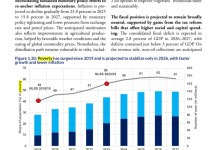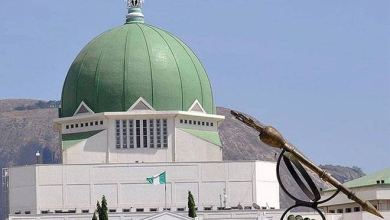Mokwa Flood Was God’s Will – Nothing We Could Do,” Says Ex-Military Ruler Babangida, Sparking Outrage
Mokwa Flood Was God's Will – Nothing We Could Do,” Says Ex-Military Ruler Babangida, Sparking Outrage

Nigeria’s former military ruler, General Ibrahim Badamasi Babangida (retired), has described the recent devastating flood in Mokwa as “ordained by God” and “beyond human control.” Babangida made the remarks during a condolence visit to the community, which was ravaged by flash floods that claimed dozens of lives, displaced hundreds, and destroyed homes and farmlands.
Speaking to reporters on the ground, Babangida said, “We must understand that some disasters are acts of God. What happened in Mokwa was destined, and there is little or nothing we humans can do when nature takes its course. It is unfortunate, but we must accept it with faith.”
His comments have since drawn sharp criticism from civil society groups, disaster response advocates, and members of the public, who view the statement as an abdication of leadership responsibility in the face of preventable tragedy. Many argue that while natural events may be inevitable, the scale of the disaster could have been mitigated with proper infrastructure, early warning systems, and proactive governance.
The flood, which occurred after days of torrential rainfall, submerged several communities in Mokwa Local Government Area, cutting off road access and overwhelming local resources. Residents recounted harrowing tales of rising waters in the dead of night, with many families fleeing with only the clothes on their backs. Emergency services, hampered by limited equipment and poor coordination, arrived hours late, according to eyewitnesses.
Local authorities have confirmed at least 38 deaths, with over 5,000 residents displaced. Temporary shelters have been set up, but conditions remain dire, with shortages of food, clean water, and medical supplies.
Human rights organizations were quick to condemn Babangida’s statement. The Socio-Economic Rights and Accountability Project (SERAP) called it “deeply insensitive and irresponsible,” demanding that both past and current leaders be held accountable for decades of underinvestment in critical infrastructure and disaster preparedness
“The people of Mokwa deserve better than fatalistic platitudes,” said SERAP’s director, Kolawole Oluwadare. “This tragedy is not divine punishment – it is a consequence of long-term systemic neglect.”
Nigeria has seen a surge in climate-related disasters in recent years, including floods, droughts, and desertification, particularly in its northern regions. Experts have repeatedly warned that without significant investment in climate adaptation and urban planning, such disasters will become more frequent and more deadly.
Despite billions of naira budgeted for ecological projects and flood prevention, transparency and effective implementation remain elusive, fueling public distrust in government initiatives.
As Mokwa begins the long road to recovery, the former head of state’s remarks have reignited a national conversation about leadership, accountability, and the role of government in protecting its citizens. For the survivors, the flood may have been an act of nature — but many believe the true disaster lies in the failure to prevent it.









